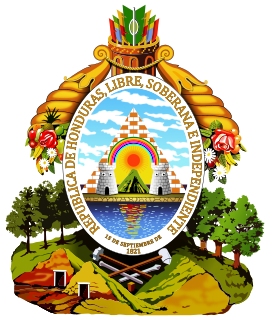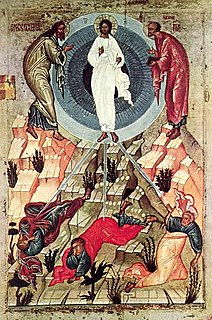Related Research Articles

Moros y Cristianos or Moros i Cristians literally in English Moors and Christians, is a set of festival activities which are celebrated in many towns and cities of Spain, mainly in the southern Valencian Community. According to popular tradition the festivals commemorate the battles, combats and fights between Moors and Christians during the period known as Reconquista. There are also festivals of Moros y Cristianos in Spanish America.

The Christian Democratic Party is a Christian-democratic political party in Bolivia.
The International League of Religious Socialists is an umbrella organization of religious socialist movements in political parties throughout the world. Founded in the 1920s, it has member groups in 21 countries totalling 200,000 members. For most of its history it was mainly European and contained mainly Christian socialist groups, but has recently expanded to the Americas, Africa, and Australia and to include more groups with connections to other religions. It is an associate organisation of the Socialist International.

Presidential elections were held in El Salvador on 20 February 1977.

Legislative elections were held in El Salvador on 12 March 1972. The result was a victory for the National Conciliation Party, which won 39 of the 52 seats. However, the election was marred by massive fraud and the Central Election Council disqualified the candidates of the opposition National Opposing Union in five out of fourteen constituencies. Voter turnout was 56.7%.

Legislative elections were held in El Salvador on 8 March 1970. The result was a victory for the National Conciliation Party, which won 34 of the 52 seats. However, the election was marred by massive fraud. Voter turnout was just 41.6%.

Legislative elections were held in El Salvador on 10 March 1968. The result was a victory for the National Conciliation Party, which won 27 of the 52 seats. Voter turnout was just 36.6%.

The Authentic Costeño Autonomy Movement is a regional Nicaraguan political party founded in 1993 by Faran Dometz Hebbert, a Moravian pastor from Pearl Lagoon and former director of the Moravian High School in Bluefields. MAAC represents the Creole establishment. The MAAC contested in the 1994 Atlantic Coast Regional Elections and won 2 seats in the RAAS Regional Council.

Legislative elections were held in El Salvador on 8 March 1964. The result was a victory for the National Conciliation Party, which won 32 of the 52 seats.

Legislative elections were held in El Salvador on 13 March 1966. The result was a victory for the National Conciliation Party, which won 31 of the 52 seats.

Presidential elections were held in El Salvador on 20 February 1972.

General elections were held in Honduras on 24 November 1985. Voters went to the polls to elect a new President of the Republic and a new Congress.

Constituent Assembly elections were held in Honduras on 20 April 1980. In July the Assembly elected Policarpo Paz García as president.

General elections were held in Honduras on 10 October 1954. The elections were relatively honest. and saw Ramón Villeda Morales of the Liberal Party emerge as the most popular presidential candidate with 48% of the vote. However, the constitution required Congress to confirm the president if no candidate received a majority in the popular vote. The Liberals did not have a majority in Congress, and the National Party and National Reformist Movement (MNR) agreed to block Villeda's candidacy, although they were unable to agree on a candidate of their own. The two parties boycotted the confirmation session in November – an idea proposed by US Ambassador Whitting Willauer – meaning those present did not form a quorum.

Francisco of Osuna, O.F.M., was a Spanish Franciscan friar and author of some of the most influential works on spirituality in Spain in the 16th century.
The Movement for Socialism was a political movement in Honduras, active inside the Christian Democratic Party of Honduras (PDCH). The split inside DC had begun to emerge in 1975. MAS was constituted at the Sixth National Plenum of the party in March 1976. MAS was founded by a younger generation within the PDCH, with leaders like José Antonio Cruz Oliva, Efraín Díaz Arrivillaga, Rodolfo Sorto Romero, Rafael Alegría, Oswaldo Discua, Juan Ramón Dermit, Melba Reyes and others. Many of its leaders came from university-based organization. Inside PDCH MAS confronted the "El Palo" faction for influence over the organization.
The Socialist Party of Honduras was a small left-wing political party in Honduras. PASO was founded in November 1978.

The Honduran Patriotic Front was a coalition of political groups active in Honduras in the early 1980s.
Samuel Silva Gotay is a sociologist of religion of Puerto Rico and Latin America. He was born in Ponce, Puerto Rico in 1935.
Anarchism in Costa Rica emerged in the 1890s, when it first came to the attention of the country's ruling elites, including the Catholic Church.
References
- 1 2 Edgardo Antonio Rodríguez (2010). Los partidos minoritarios en Honduras. Editorial Elena. p. 217. ISBN 978-99926-47-86-8.
- ↑ Benjamín Santos M. (1981). Datos para el estudio del movimiento social cristiano, Honduras, 1981. Instituto de Investigaciones Socio-Económicas. p. 28.
- 1 2 Hilda Caldera T. (1986). La Democracia Cristiana en Centroamérica. INCEP. p. 176.
- ↑ Estudios sociales centroamericanos. Programa Centroaméricano de Desarrollo de las Ciencias Sociales. 1982. p. 179.